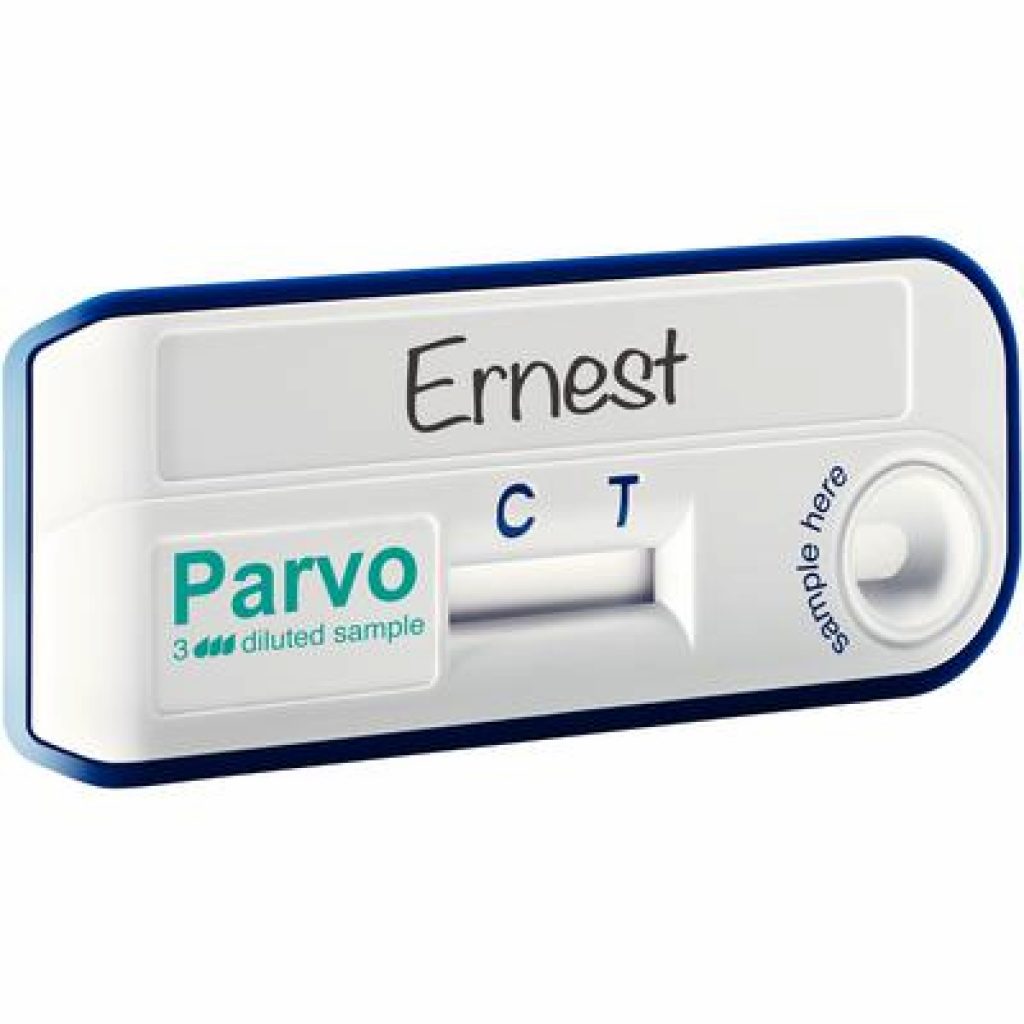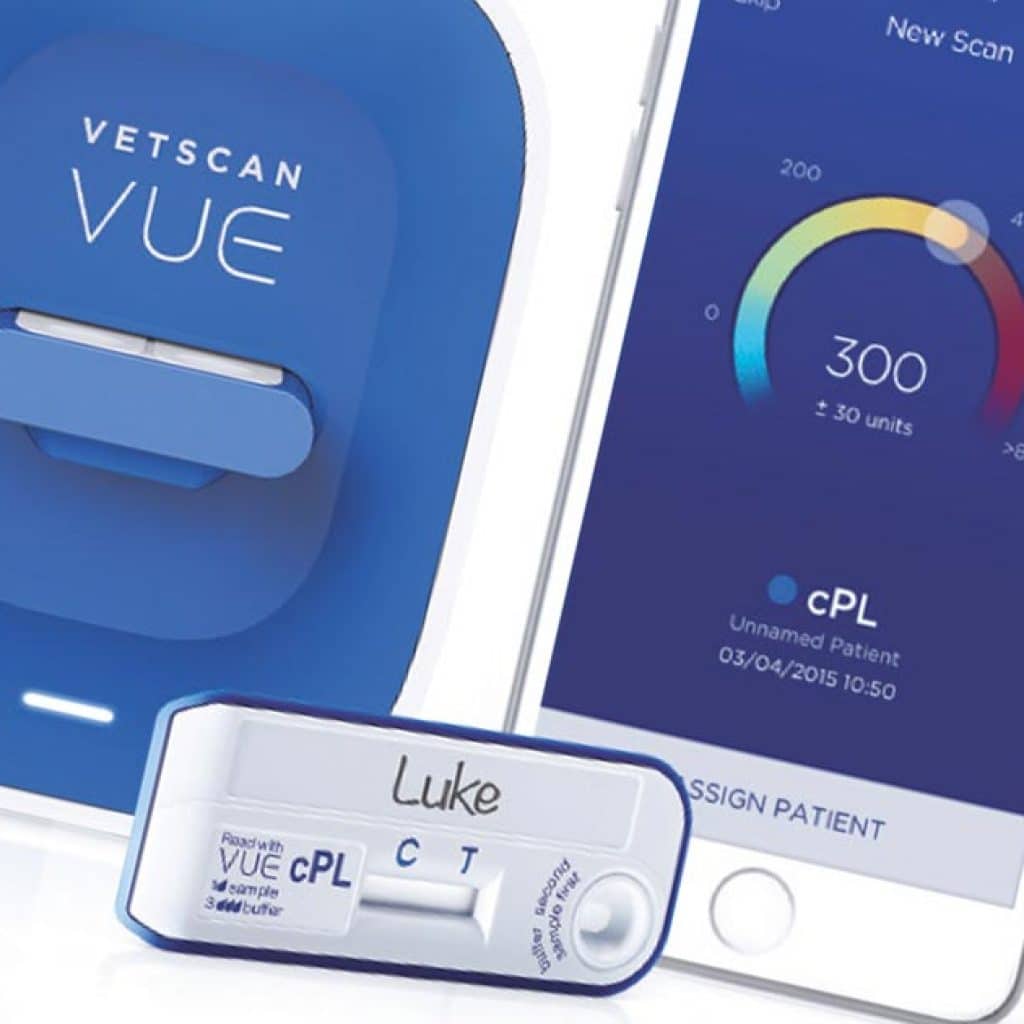
The Truth of Accuracy – VetScan Canine Parvovirus Rapid Test
Canine Parvovirus is a highly infectious, single-stranded DNA virus that causes severe gastrointestinal upset, and most typically presents in younger, unvaccinated dogs. Parvovirus is transmitted by the faecal-oral route, however, fomite transmission (via bedding material or contaminated surfaces) is also very efficient. The virus is extremely stable in the environment, which makes dog-to-dog transmission easy and decontamination difficult.
Vaccines and a proper immune response are extremely effective at preventing disease, and parvovirus infections are mostly diagnosed in dogs less than a year old that are unvaccinated or inadequately vaccinated.
Following infection, faecal shedding begins on day 3, peaking on days 3 and 4 and waning by day 7. Shedding can occur prior to the development of clinical signs. Viral antigen is detectable in the intestinal epithelium by day 4 with very little viral antigen still present by day 7.

Early clinical signs include lethargy, decreased appetite and fever, followed by severe vomiting and diarrhoea as the disease progresses. Concurrent gastrointestinal parasitic infections and/or bacterial infections are common; therefore, a faecal examination should be concurrently performed and treated appropriately. A leukopenia and/or anaemia are common, and a complete blood count should be performed to aid in diagnosis and determine treatment protocols. In addition, electrolyte disturbances and hypoalbuminemia may be present and warrant a blood chemistry profile for these same reasons.
Diagnosis of canine parvovirus should be based on clinical signs, patient signalment (young and under vaccinated) and the presence of leukopenia. The next step in diagnosis should involve a cage-side faecal parvovirus antigen test, such as the VetScan Canine Parvovirus Rapid Test. The VetScan Canine Parvovirus Rapid Test detects CPV-1, CPV-2a, 2b and 2c strains of the canine parvovirus disease in canine faecal matter.
Study Design
The USDA-approved study involved 258 faecal samples that were obtained from private practices, humane societies and laboratories. Samples were determined to be positive or negative based on canine faecal results obtained from the VetScan Canine Parvovirus Rapid Test with hemagglutination inhibition (HI) canine faecal results.
Results
The VetScan Parvovirus Rapid Test correctly identified 93/96 HI positive canine faecal samples and 157/162 negative canine faecal samples. The discrepant results were resolved by PCR testing in a reference laboratory. Based on this study, the sensitivity and specificity of the VetScan Canine Parvovirus Rapid Test was 96.9% and 96.9% respectively.
Discussion
Potential interference causing false results is possible in all available in-house canine parvovirus diagnostic tests on the market. A false positive test result may occur if the patient tested was vaccinated using a modified-live vaccine 4-8 days prior.

A negative result on the VetScan Canine Parvovirus Rapid Test does not definitively rule out the canine parvovirus infection. Both false negatives and false positives are possible, and a recent study at University of California Davis showed that all results. A recent study found that the IDEXX SNAP test detected 80%, 78% and 77% of parvovirus strains 2a, 2b, and 2c respectively.
False negatives are possible due to transient shedding, testing outside of the peak disease shedding window, or faecal antibodies that can bind the virus, making it unavailable to bind the assay. In addition, poor sampling technique, and/or not enough faecal material can lead to erroneous results. Faecal shedding of parvovirus antigen at detectable levels typically occur 3-12 days post-exposure and usually correlates with the onset of clincal signs. Virus shedding tends to wane 8-12 days post-exposure. Therefore, it is important to test faeces at the onset of clinical signs, and if negative on the VetScan Canine Parvovirus Rapid Test, isolate, treat appropriately, test for other parasitic infections, and retest in 1-2 days or confirm with laboratory PCR testing, if needed.
Conclusions
The diagnosis of canine parvovirus should be based on signalment and clinical findings in conjunction with a point-of-care faecal antigen test, such as the VetScan Canine Parvovirus Rapid Test. False negatives may occur due to the disease process. False positives are rare but may be due to vaccine interference if tested up to 8 days post-vaccination with a modified-live vaccine. The VetScan Canine Parvovirus Rapid Test is both a sensitivity and specific test to be used in conjunction with other patient information to diagnose canine parvovirus quickly and accurately.

Bioscint Engineering supports the veterinary community by providing various VetsScan Rapid tests and the VetScan VUE rapid test reader by world renowned brand Abaxis for complete peace of mind. Kindly get in touch with us for more information and pricing.
Source:abaxis.com






